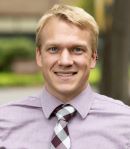Page 15 • (467 results in 0.05 seconds)
-
credits 1 credit 16 credits Second SemesterNUR 311 – Pathophysiology/Pharmacology II NUR 314 – Care of Chronic Conditions NUR 315 – Psychiatric Mental Health Principles NUR 316 – Clinical Practicum II NUR 317 – Theory and Evidence NUR 318 – Research Methods NUR 319 – Health Care Technology Total2 credits 3 credits 2 credits 5 credits 1 credit 2 credits 1 credit 16 credits Third SemesterNUR 401 – Care of Complex Conditions NUR 402 – Pathophysiology/Pharmacology III NUR 403 – Clinical Practicum III NUR
-
credits 1 credit 16 credits Second SemesterNUR 311 – Pathophysiology/Pharmacology II NUR 314 – Care of Chronic Conditions NUR 315 – Psychiatric Mental Health Principles NUR 316 – Clinical Practicum II NUR 317 – Theory and Evidence NUR 318 – Research Methods NUR 319 – Health Care Technology Total2 credits 3 credits 2 credits 5 credits 1 credit 2 credits 1 credit 16 credits Third SemesterNUR 401 – Care of Complex Conditions NUR 402 – Pathophysiology/Pharmacology III NUR 403 – Clinical Practicum III NUR
-
, atomic and molecular theory, periodic relationships, states of matter, quantitative relationships, and thermochemistry. The course includes laboratory experiences. Corequisite: MATH 140 or math placement in MATH 151 or higher. Recommended: one year of high school chemistry. (4) CHEM 116 : General Chemistry II - NW Introduces students to chemical kinetics, chemical equilibrium, acid-base chemistry thermodynamics, electrochemistry, chemistry of the elements, and coordination compounds. The course
-

-oriented way. Rigorous coursework and clinical experiences lead to the development of a Culminating Professional Portfolio which includes practical performance-based documentation of candidates’ knowledge, skills, dispositions and professional behaviors. This practitioner focused program is lead in a cohort-based model by knowledgeable faculty and local practitioners. It connects theory, research and practice in an intertwined and interdependent web. Program Highlights: Instructional Leadership – With
-
Course Title ARTD 101 Drawing I - CX ARTD 102 2D Design/Color Theory - CX ARTD 110 Graphic Design 1 - CX ARTD 180 History of Western Art I - CX ARTD 181 History of Western Art II - CX ARTD 201 Drawing 2: Figure Drawing - CX ARTD 202 3D Design - CX ARTD 220 Photography I: BW Photography - CX ARTD 230 Ceramics 1 - CX ARTD 280 Art Methodology and Theory - CX ARTD 315 The Art of the Book I - CX ARTD 320 Photography 2: Digital Photography - CX ARTD 355 3D Digital Modeling - CX ARTD 380 Modern Art
-
. Required for social work majors. Prerequisite: SOCI 101. (4) SOCW 245 : Human Behavior and the Social Environment - ES Students examine developmental theory through the lens of an ecological systems perspective and a biopsychosocial-spiritual framework, emphasizing power, privilege, and cultural differences (particularly race/ethnicity, gender, and sexual orientation) as applied to individuals, families, groups, institutions, organizations, and communities locally and globally. Volunteer experience is
-
). Women, Technology, and International Development Ideologies: Analyzing Feminist Voices. In Gender at the Crossroads of Knowledge: Feminist Anthropology in the Post-Modern Era. M. di Leonardo ed. Berkeley: University of California Press, pp. 278-311. Matthew Salzano, '18, Communication and Women's & Gender Studies:My Oxford Tutorial was my first foray into properly reading gender, feminist and queer theory. I was reading texts like Gender Trouble, texts I had only previously encountered as references
-

, Environmental Economics, Natural Resource Economics, Behavioral Economics, Strategic Behavior, Econometrics Biography Ryan Swartzentruber is a dedicated educator and researcher with a passion for environmental policy and experimental economics. He strives to engage students by applying microeconomic theory to real-world challenges and encouraging them to tackle complex issues. Ryan joined Pacific Lutheran University in 2024 after completing his Ph.D. at the University of Tennessee. He has taught a variety
-

David P. Robbins Professor Emeritus Professional Biography Additional Titles/Roles Term of Service: 1969-2019 Education M.M., Composition, University of Michigan, 1969 B.M., Composition, University of Michigan, 1968 Areas of Emphasis or Expertise Music Administration Percussion Responsibilities Applied Composition and Percussion Lessons, Teaches Music Theory Biography David P. Robbins was a Professor of Music at Pacific Lutheran University from 1969 until his retirement in 2019. Born in
-
- Foundations of Care Delivery & Health Promotion NURS 307 - Health & Physical Assessment NURS 308 - Clinical Practicum I NURS 309 - Professional Foundations & Principles of Leadership NURS 310 - Scholarly Writing Concepts 4 credits 3 credits 3 credits 3 credits 2 credits 1 credit Semester 2Nursing 311 – Patho/Pharm II Nursing 314 – Care of Chronic Conditions Nursing 315 – Psych/Mental Health Nursing 316 – Clinical Practicum II Nursing 317 – Theory & Evidence Nursing 318 – Research Methods Nursing 319
Do you have any feedback for us? If so, feel free to use our Feedback Form.


